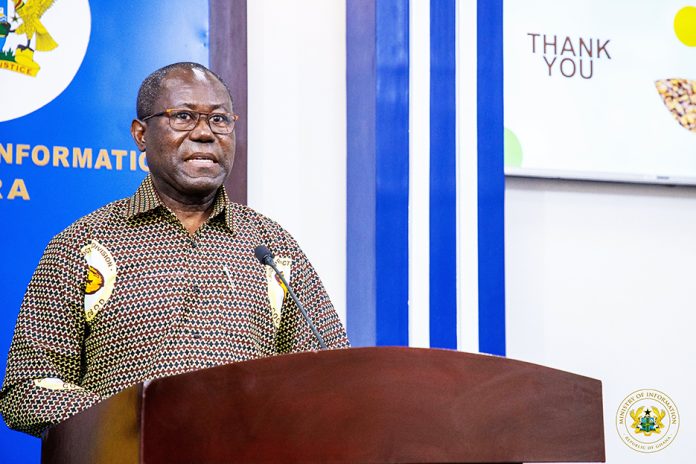The Chief Executive (EC) of the Ghana Cocoa Board, Joseph Boahen Aidoo, has disclosed that illegal mining (Galamsey) is causing a decline in Cocoa Production with activities primarily concentrated in swampy areas, critical for cocoa cultivation.
“Yes, it has a toll on the industry, cocoa doesn’t like too much water, so the cocoa cannot thrive in swampy environment. The swamp area provides a reservoir of water that sustains the ecosystem.
“During the dry season, evaporation from these areas returns moisture to the plants, which is vital for their growth,” he disclosed.
He made this known on Monday, October 14, 2024 while he was addressing the media on the achievements in the Cocoa Sector since 2017 in Accra.
He illustrated the importance of these swampy areas: “In the early morning, the stomata of the cocoa leaves open to absorb the mist. This natural process keeps the cocoa in an evergreen condition.”
However, the situation has drastically changed due to illegal mining: “When the swamps are excavated, it creates a dip. The water in the soil must then drain into these pits, which severely affects the cocoa farms.
“Therefore, because the pits have been created there, the water under the tree, that’s in the soil, all the soil must have been drained into the pits. And that’s how most cocoa farms have been affected”, he bemoaned.
However, Mr. Aidoo also highlighted the Board’s achievements in financing cocoa purchases and supporting farmers through record-setting producer prices.
He stressed COCOBOD’s dedication to empower cocoa farmers and boost the capacity of domestic financial institutions as a cheaper alternative to the reliance on external borrowing and its high dollar denominated interest rates.
“Since 2017, COCOBOD has worked relentlessly to ensure that our farmers receive the maximum benefit from their hard work. One of the most significant milestones has been the shift from 32 years of external borrowing for crop financing.
“Today, we have achieved zero borrowing, meaning zero cost of borrowing for financing cocoa purchases,” Mr. Aidoo stated.

Mr Boahene Aidoo indicated that the creative strategy has made COCOBOD less dependent on high-interest external loans by using pre-financing from Licensed Buying Companies (LBCs). This has improved the system’s overall efficiency and expedited to pay farmers.
“The new financing model strengthens the capacity of our domestic financial institutions and has eliminated the high-dollar interest rates we used to face.
“This shift has been a game-changer in reducing financial pressure on the Board and ensuring a more sustainable and cost-effective way of financing”, Aidoo explained.
In addition to financing improvements, the CEO announced that COCOBOD’s success is steadily increasing producer prices, offering substantial support to cocoa farmers amongst global price volatility.
“Year-on-year, we have consistently raised the price paid to farmers. In 2024, we made history by increasing the producer price to GHS 48,000 per ton, the highest in Ghana’s history,” he emphasised.
According to the Chief Executive of the Ghana Cocoa Board, this marks a cumulative increase of 531.58% in producer prices from 2016/17 to the current cocoa season, setting a new benchmark for farmer earnings in the country.
In addition, he noted that this remarkable growth is part of COCOBOD’s broader vision to improve farmer welfare and ensure their long-term financial stability.
“These efforts are not just about short-term gains. We want to ensure that every cocoa farmer in Ghana enjoys long-term security.
“Our payment of remunerative prices guarantees that they can invest in their farms, improve productivity, and ultimately, enjoy a better quality of life,” he emphasised.
The CEO also highlighted COCOBOD’s introduction of a comprehensive cocoa farmer database and the successful launch of the Cocoa Farmers Pension Scheme, which ensures financial independence for farmers in their later years.
“Through our integrated Cocoa Management System, we have registered over 790,000 farmers, which has paved the way for direct payments and pension contributions, ensuring that no cocoa farmer is left behind”, he said.









